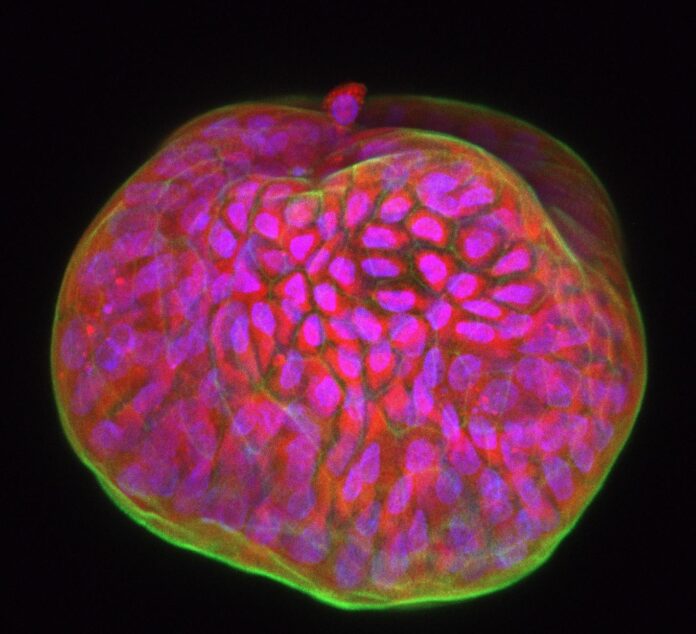
Enterocolitis is a condition characterized by inflammation of the small intestine and colon. It can be caused by a variety of factors, including infection, medication, and autoimmune diseases. When left untreated, enterocolitis can lead to severe complications, so it’s important to be aware of the symptoms and seek medical attention if you suspect you may have this condition.
In this article, we will explore the most common symptoms of enterocolitis and provide information to help you recognize the signs of this condition.
Abdominal Pain
One of the most common symptoms of enterocolitis is abdominal pain. This pain is often cramp-like and may occur in the lower abdomen. It can be accompanied by bloating, gas, and discomfort. In some cases, the pain may become severe and persistent, leading to a decreased appetite and difficulty performing daily activities.
If you experience unexplained abdominal pain that lasts for more than a few days, it’s important to consult with a healthcare professional to determine the cause and receive appropriate treatment.
Diarrhea
Diarrhea is another common symptom of enterocolitis. It can present as loose, watery stools that occur frequently throughout the day. In some cases, diarrhea may be accompanied by urgency and the feeling of incomplete emptying of the bowels. This can significantly disrupt daily activities and may lead to dehydration if not managed effectively.
If you experience persistent diarrhea, it’s important to stay hydrated and seek medical advice to determine the underlying cause and receive appropriate management.
Fever
Fever is a common symptom of enterocolitis and may indicate an underlying infection or inflammatory process. A low-grade fever may be present in mild cases, while higher fevers may occur in more severe cases of enterocolitis. The presence of fever in combination with other symptoms such as abdominal pain and diarrhea should prompt further evaluation by a healthcare professional.
If you experience fever along with other symptoms of enterocolitis, it’s important to seek medical attention to determine the underlying cause and receive appropriate treatment.
Weight Loss
Unintentional weight loss can be a sign of enterocolitis, especially in cases where the condition has persisted for a prolonged period. The combination of abdominal pain, diarrhea, and decreased appetite can lead to weight loss and nutritional deficiencies if not managed effectively. It’s important to monitor changes in weight and seek medical advice if you experience unexplained weight loss.
If you are experiencing unexplained weight loss in combination with other symptoms of enterocolitis, it’s important to consult with a healthcare professional to determine the underlying cause and receive appropriate management.
Bloody Stools
Bloody stools can be a concerning symptom of enterocolitis and may indicate inflammation or injury to the gastrointestinal tract. Blood in the stools may appear bright red or tarry in appearance, depending on the location and severity of the bleeding. It’s important to seek medical attention if you notice blood in your stools, as this can indicate a more serious underlying condition that requires prompt evaluation and treatment.
If you notice blood in your stools in combination with other symptoms of enterocolitis, it’s important to seek immediate medical attention to determine the cause and receive appropriate management.
Dehydration
Dehydration can occur as a result of persistent diarrhea and may present with symptoms such as increased thirst, dry mouth, decreased urination, and fatigue. In severe cases, dehydration can lead to dizziness, confusion, and rapid heart rate. It’s important to stay hydrated if you experience diarrhea and seek medical attention if you develop symptoms of dehydration.
If you experience symptoms of dehydration in combination with other symptoms of enterocolitis, it’s important to seek medical advice to determine the underlying cause and receive appropriate management.
Nausea and Vomiting
Nausea and vomiting can occur in cases of enterocolitis and may be triggered by inflammation of the gastrointestinal tract. Nausea may present as a feeling of discomfort in the stomach, while vomiting may occur in more severe cases. It’s important to monitor these symptoms and seek medical attention if they persist or worsen.
If you experience persistent nausea and vomiting in combination with other symptoms of enterocolitis, it’s important to consult with a healthcare professional to determine the underlying cause and receive appropriate management.
Joint Pain and Swelling
Joint pain and swelling can occur as a result of enterocolitis, especially in cases where the condition is associated with autoimmune diseases such as inflammatory bowel disease. These symptoms may be present in conjunction with gastrointestinal symptoms and can significantly impact daily activities. It’s important to seek medical advice if you experience joint pain and swelling in combination with other symptoms of enterocolitis.
If you experience joint pain and swelling in combination with other symptoms of enterocolitis, it’s important to consult with a healthcare professional to determine the underlying cause and receive appropriate management.
Fatigue
Fatigue is a common symptom in cases of enterocolitis and may be due to a combination of factors such as inflammation, decreased appetite, and nutritional deficiencies. Persistent fatigue can significantly impact daily activities and may indicate the need for further evaluation and management. It’s important to seek medical attention if you experience debilitating fatigue in combination with other symptoms of enterocolitis.
If you experience persistent fatigue in combination with other symptoms of enterocolitis, it’s important to consult with a healthcare professional to determine the underlying cause and receive appropriate management.
Persistent Symptoms
It’s important to note that the symptoms of enterocolitis can vary in severity and duration. In some cases, the symptoms may be mild and resolve on their own, while in other cases, they may persist and worsen over time. It’s important to monitor your symptoms and seek medical attention if they persist or worsen, as this can indicate a more serious underlying condition that requires prompt evaluation and treatment.
If you experience persistent symptoms of enterocolitis, it’s important to seek medical advice to determine the underlying cause and receive appropriate management.

















